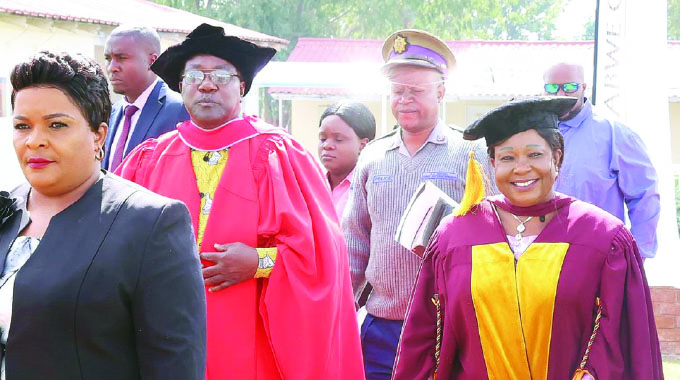EDITORIAL COMMENT: Investor return, testimony to re-engagement efforts

The Zimbabwean economy has been growing rapidly during the Second Republic with the revamped open-door investment policy being one of the most important reasons, especially for mining which has seen output more than quadruple as investors pile.
The latest mining investor planning on moving in is Cluff Africa, a British company and an old investor who came in after independence but later left for a range of reasons.
Now they are planning on coming back and have done a lot of work already, including working out how a joint-venture mine with Mutapa Investment Fund would work, with Cluff being the majority shareholder and operator.
The trigger for this return was when President Mnangagwa went to Britain last year for the coronation of King Charles III. As he almost always does on any foreign trip with his pro-business and pro-investment stance, he had arranged a meeting with interested British business people where he could outline Zimbabwe’s opportunities and answer queries and concerns raised at the meeting.
Among those who attended was Cluff Africa chairperson, Algy Cluff, who clearly had heard about the upgrades in the investment policy and was interested in finding out if he would be welcome to Zimbabwe again. Whatever his concerns were, the President was clearly able to reignite investment interest and assure Mr Cluff that he would be most welcome to come back.
The company has been active since then and this week Mr Cluff himself has led a team back to Zimbabwe to go into details, and has found that along with all serious investors there is a large welcome mat. This time he wants to mine lithium, rather than the gold that formed the backbone of his first investment.
Having a former investor who once pulled out but is now coming back highlights the major changes that President Mnangagwa and the Second Republic have made to make Zimbabwe an attractive investment destination. There is a lot of competition for investment around the world so Zimbabwe’s successes show how much has been done to make the policies workable.
The policies centre around making it much easier to do business with only the essential elements in place, and even here with officials mandated to be helpful.
For mining the essentials are simple. The mine obviously has to have registered claims, but these claims can be large enough to supply the mine for its expected life. Safety and environmental standards have to be upheld, but these standards are not arbitrary and are similar to what other responsible governments around the world lay down.
Taxes, which include the critical royalties on gross output, have to be paid in full and on time, but the tax levels are not excessive and again are similar to what other attractive investment destinations seek.
Generally speaking, a very high percentage of the workforce should be Zimbabwean, although work permits will be issued where necessary for foreign staff. But since one of Zimbabwe’s attraction as an investment destination is the large pool of skilled and technical staff, this has never been a problem. An investor might need a technical team to set up operations, but after that usually goes for something very close to 100 percent Zimbabwean. It is easier and simpler to hire local staff than pay a lot of additional expenses associated with bringing in foreign staff.
The labour law is kept straightforward and direct, and again is rational, with a lot of the detailed labour rules in each sector set by a national employment council that has to satisfy both employers and employees.
It is Government policy that as much as possible of the refining and other value addition is done in Zimbabwe, and there is even a tax on those who do not do this. But the tax law also makes it clear that so long as reasonable progress is being made towards final refining then the tax will not be charged. The position was to create an incentive rather than collect another tax.
In any case again Zimbabwe’s advantages come into play and it is often cheaper to do processing locally. The Government is now joining and encouraging investment in shared refining and processing plants, so that the medium sized mines and businesses that might find the capital cost of their own processing plants too high can still benefit from the concessions.
Almost every large company these days has social programmes, and the Government suggests that a major mine concentrate these on its surrounding community. But then every business wants to be a good neighbour and while social programmes can ease relations, they are rarely a major item of expense.
This clear and direct policy is what has been making Zimbabwe an attractive investment destination, with a lot done over the last seven years. The fact that in the mining world it usually takes a couple of years at least, from the moment of signing a deal to shipping the first consignments, makes the quadrupling of mining output even more impressive, with a lot more investment already made but the production still in the pipeline.









Comments